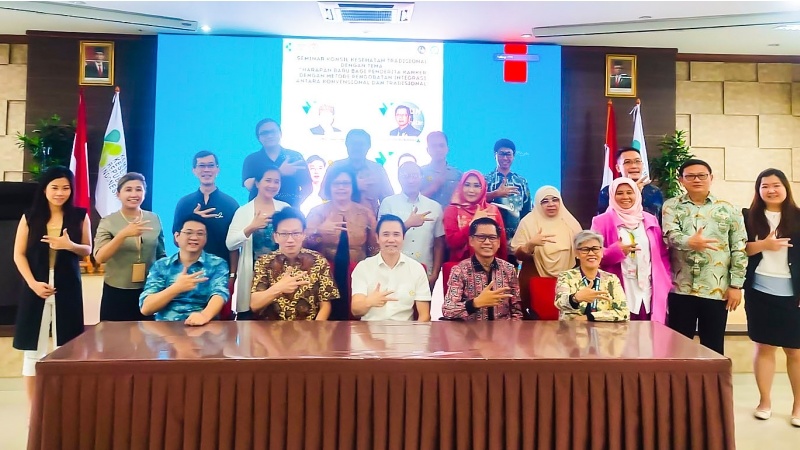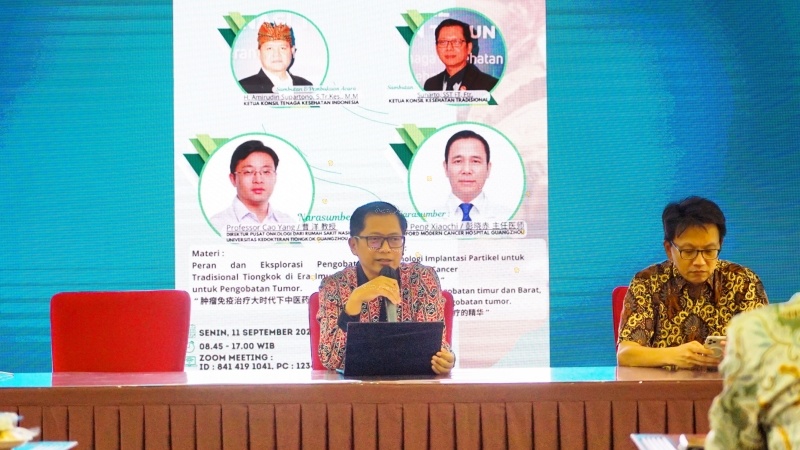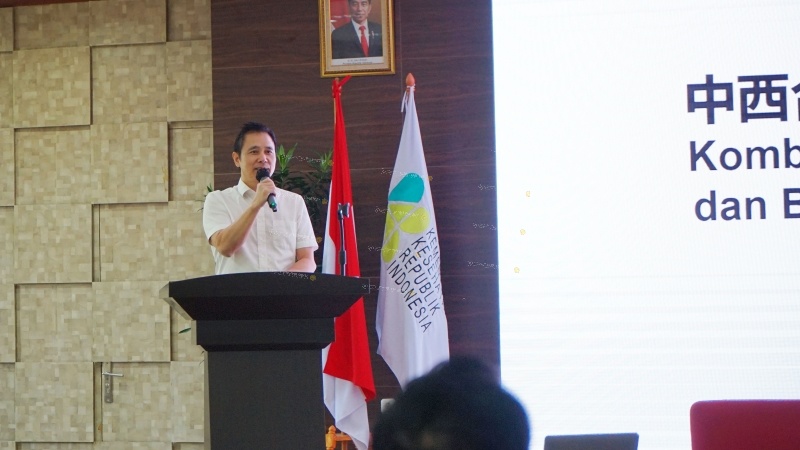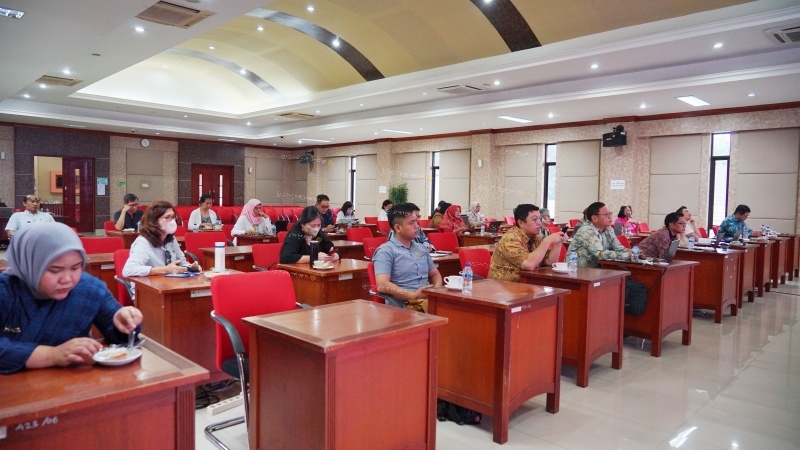Chairman of the Indonesian Traditional Health Commission Mr. Sunarto, SST.Ft, Ftr, Vice Chairman Mr. Suryawan, SE, B.Med, M.Med, Professor Peng Xiaochi of St. Stamford Modern Cancer Hospital Guangzhou, Manager of Jakarta Representative Office Mr. Hu Yehai and others attended the seminar. Professor Cao Yang, Deputy Director Of The Chinese And Western Integrated Biliary Tract Cancer Committee of the Chinese Anti-Cancer Association, was invited to give online guidance.

At 8:30, the seminar officially started with the host's speech and the applause of the guests. There were a total of 50 guests at the event, and a total of 280 online listeners.
Indonesian Traditional Health Commission Chairman Mr. Sunarto, SST.Ft, Ftr said that, “According to data from the Indonesian Basic Health Research, the incidence rate of tumors/cancers in Indonesia increased from 1.4 cases per 1,000 people in 2013 to 1.79 cases per 1,000 people in 2018. The total number of cancer cases in Indonesia is increasing. Mutual integration between new oncology treatment technologies and conventional medicine is needed to improve the life expectancy of Indonesian patients with tumors/cancer .To this end, we invited experts from the "The Belt and Road" Integrated Oncology Medical Training Base of the China Anti-Cancer Association to share knowledge of traditional and conventional comprehensive treatment methods for cancer to help us fight cancer. ”

On the day of the event, Professor Peng Xiaochi, as a special guest of this health seminar, on behalf of St. Stamford Modern Cancer Hospital Guangzhou, the "Belt and Road" integrated oncology training base of the China Anti-Cancer Association, gave a wonderful speech on the theme of "Optimizing Tumor/Cancer Treatment through Traditional and Conventional Integrative Therapeutic Approaches".
It also introduced the unique experience and cutting-edge technology of St. Stamford Modern Cancer Hospital Guangzhou in details, and highlighted the hospital's integrated traditional Chinese and Western medicine treatment, particle implantation and cryotherapy technology.The guests on site and the online audiences actively asked questions, and Professor Peng Xiaochi patiently answered them one by one.


Questions from the audiences
Professor Cao Yang, Deputy Director Of The Chinese And Western Integrated Biliary Tract Cancer Committee Of The China Anti-Cancer Association, shared his insights on The Role and Exploration of Traditional Chinese Medicine in the Era of Tumor Immunotherapy and also mentioned that spreading China's excellent cancer prevention and treatment knowledge and experience to Indonesia and other countries and regions along the Belt and Road to help more cancer patients alleviate their pain is an important mission of Integrated Oncology Medical Training Base Of China Anti-Cancer Association.
After listening to the explanations of Director Peng Xiaochi and Professor Cao Yang, Mr. Sunarto, SST.Ft, Ftr, Chairman of the Indonesian Traditional Health Commission, summarized the seminar and was full of confidence in the future development. He said that the combination of traditional and modern medicine is a hot area in the medical field at present. St. Stamford Modern Cancer Hospital Guangzhou combines traditional Chinese medicine treatment with modern medicine, bringing new hope to cancer patients.
The seminar also invited cancer experts and scholars from Indonesia to have in-depth exchanges with experts from St. Stamford Modern Cancer Hospital Guangzhou. The two parties jointly discussed the application of traditional and conventional comprehensive treatment methods in cancer management, and conducted extensive discussions and research on future cooperation and development directions. We believe that with the joint efforts of both parties in the future, we will provide Indonesian cancer patients with more advanced and personalized medical solutions and write a glorious chapter for them to overcome the disease.
*Surgery, in addition to the appropriate chemotherapy and radiotherapy, are effective in treating early cancer, but certain patients in late stage of cancer may not be tolerate surgery well as they can be relatively weak. A combination of carefully planned minimally invasive therapy, chemotherapy or radiotherapy can effectively reduce the side effects and discomfort of treatment and may help patient get better efficacy.













 viber
viber